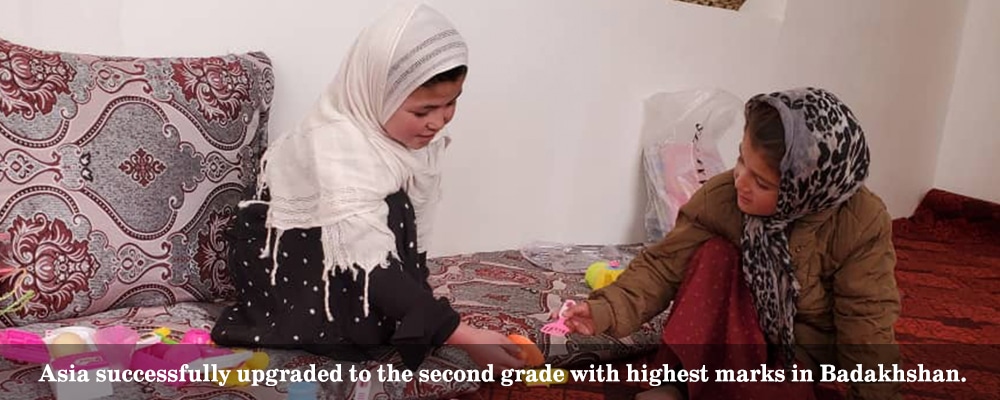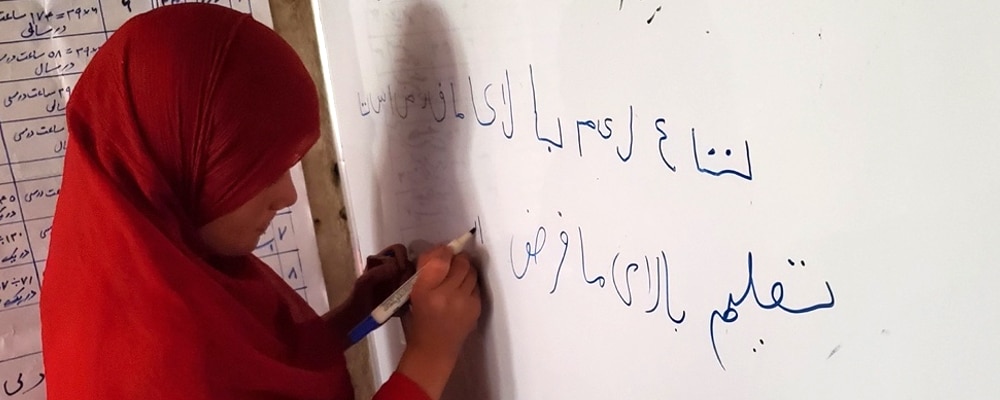Asia’s Story

Asia is a second grader on a mission. Living in the Dasht Sar Lola village of Badakhshan, Asia has faced tremendous obstacles in her journey towards education, but she has also discovered the satisfaction of learning and personal achievement. After achieving the highest marks in her first grade class, Asia is determined to see continued […]
An Education Back on Track: Royesa’s Story

In the Ishkashan Village of Badakhshan District, Afghanistan, primary education is not a guarantee. Although all children are expected to attend primary school through sixth grade, the barriers to attendance are high. In sparsely populated, mountainous areas, formal school buildings are often a long distance—certainly too long for young children to access—and systemic issues related […]
